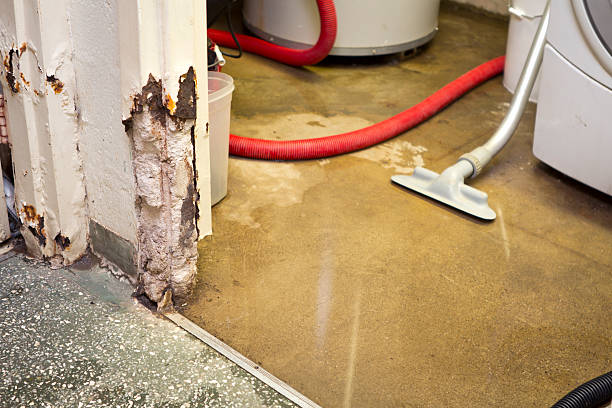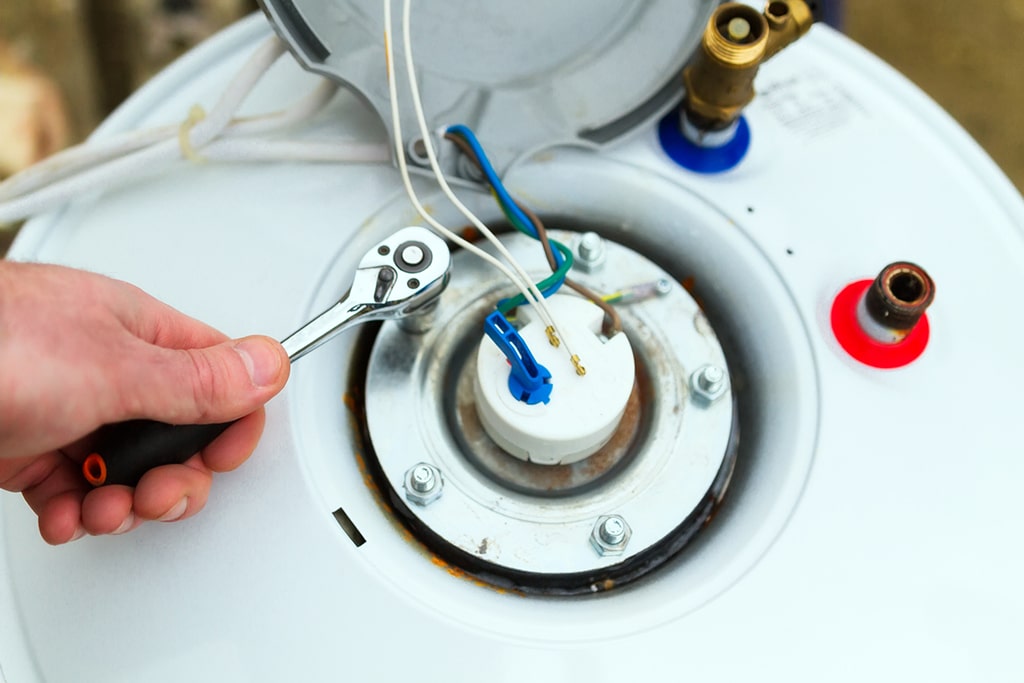Essential Actions for Residential Property Owners Handling Faulty Heating Units
Essential Actions for Residential Property Owners Handling Faulty Heating Units
Blog Article
We have unearthed this post about Maintaining & Draining a Water Heater down the page on the net and concluded it made perfect sense to talk about it with you on this site.

Whether it lies in the cellar or a separate room, busted water heaters can cause stress. A basic unit holds 80 gallons, so an overnight leak will lead to a flood. This leads to significant home damages with soaked walls and floors. Besides, having no warm water supply is also problematic. If you are managing these issues, remember of the following:
Turn Off Source Of Power
Before calling the plumber, shut off a gas water heating system by turning the temperature dial. This will certainly protect against electrocution, particularly if there is a leak as water is a conductor. Commonly, the heating component closes off when the water strikes a particular temperature level.
Cut Off the Cold Water Supply
Cut off the containers tap water supply from the source. This goes from your primary water line into the storage tank. When your container is in good condition, the cold water quits filling when the storage tank is complete. However considering that it is leaking, the water will certainly remain to move. Shut the valve found on top of the heating system. Turn this clockwise to shut it off. You have to transform off that main water supply line outside your residential property if you can not locate it or reach it.
Call the Plumber
After doing the very first two safety and security steps, you have to call your plumber to come right away to repair a fractured hot water heater. Bear in mind that your device will certainly not just conk out dramatically overnight. There are usually indicators that your aging hot water heater has debris accumulation in the interior. Keep in mind of the following:
Do not await major flooding to call the plumber. By then, you will certainly need to invest more to restore your home. Instead, as quickly as you identify these signs, have actually a professional concerned examine your water heater say thanks to. Normally, hot water heater have a life-span of regarding 8 to 12 years. With routine evaluation as well as maintenance, you can prolong its life.
Tidy up Home
After calling the plumber, file damages by bearing in mind and images so you can claim your property owner's insurance coverage. From there, start the prompt cleaning. Get any kind of crucial personal belongings to prevent additional saturating. Get rid of any type of standing water to stop mold and mold development. Make use of that to drain the water if you have a completely submersible water pump. Or else, the standard pail technique will certainly likewise work. Try to wipe out every little thing, consisting of baseboards and wall surfaces. Keep them running to maintain air distributing if you have an electric follower and dehumidifier. This will aid discourage mold growth.
Keep in mind, if you discover any issues with your water heating system, call the pros right away. You can not take this issue lightly because a damaged thermostat can increase water temp to a dangerously high degree, leading to unintentional burns.
Whether it is located in the cellar or a separate area, busted water heating units can create stress. Before calling the plumber, closed off a gas water heating unit by transforming the temperature dial. After doing the very first two security steps, you have to call your plumber to come right away to fix a ruptured water heater. If you have a submersible water pump, use that to drain the water. Remember, if you observe any kind of concerns with your water heating unit, call the pros right away.
Is My Water Heater Broken?
The Water Heater is Old
No appliance will last forever. This includes a home’s water heater. During its lifespan, residents are going to face a situation where a new water heater installation will be necessary. The biggest problem with this is that most people are not sure when their water heater expires. Not knowing this can lead to serious risks if the unit begins to act up due to old age.
Most makes and models of water heaters will last between eight and 10 years. While 10 years is the age when water heater replacement is highly recommended, the need to replace the unit may occur before this time or after. If the unit doesn’t show any symptoms of a problem, it is a good idea to replace it at the 10-year mark (from the manufacture date).
Some of the symptoms that indicate a new unit is needed include rusting, leaks, noises, and a failure to heat up the water. Also, note that not all units have a 10-year life expectancy. The main exception to this rule is that a gas unit will last for six to eight years.
Rusty Heater Inlet Valve or Water
While steel is the strongest material on earth, it does have a weakness – rust. If corrosion occurs on a steel surface, it will begin to spread and eat through the steel in certain areas. On water tanks and pipes that are made of steel, rust is a warning sign of an impending leak.
The issue for many is trying to figure out if the rust is coming from the water heater or the pipes that lead to the faucet. If rust is seen, it is a clear indication that water heater service from the professionals is needed.
If rusty water appears out of the faucets in the bathtub or sink, it likely means a rusty water heater. If there is rust near the water inlet or the pressure relief valve, rust has likely developed inside the tank. If tap water appears rusty, it may be an issue with the pipes.
Strange Sounds from the Water Heater
Are there strange sounds coming from the tank? As a water heater gets older, rumbling noises may develop and get louder and louder as the water in the tank heats up. In homes where large amounts of hot water are used, the issue is likely going to be even more obvious when more serious issues arise. If there is a strange or loud noise coming from the unit, it is probably because of sediment buildup. A good way to remedy this problem is by flushing the heater. If this does not work, then a new unit may need to be installed.
Leaks
As a water heater gets closer to the end of its useful life, there is a higher chance there will be water around the tank. If there is water, this usually means leaks are occurring. Based on where the unit is located in the home, a leak may result in serious property damage.
Leaks are usually caused by expansions in the metal tank. The expansions occur as time passes and as the inside body of the tank is exposed to multiple heating cycles per day. When a fracture forms, the gap will be slight enough to hold the water in; however, in more serious situations, this will not be the case. If the tank is idle, the water will not leak but when the metal expands during each heating system, small amounts of water will get through the gap.

As a passionate reader about Maintaining & Draining a Water Heater, I assumed sharing that piece of content was important. Are you aware of someone else who is involved in the subject? Do not hesitate to share it. We take joy in reading our article about What Do You Do When Your Water Heater Bursts?.
Prioritize your plumbing; call us. Report this page